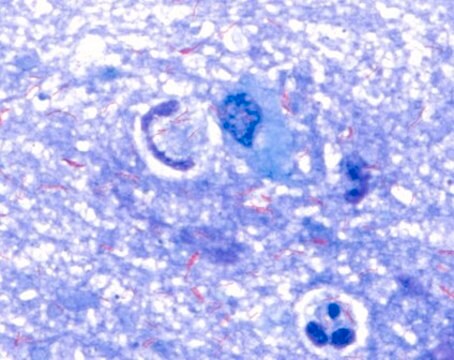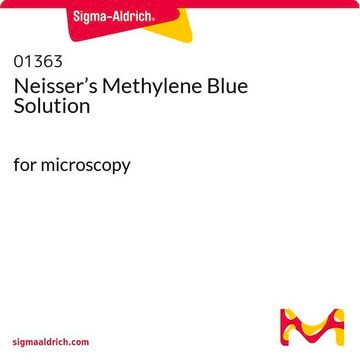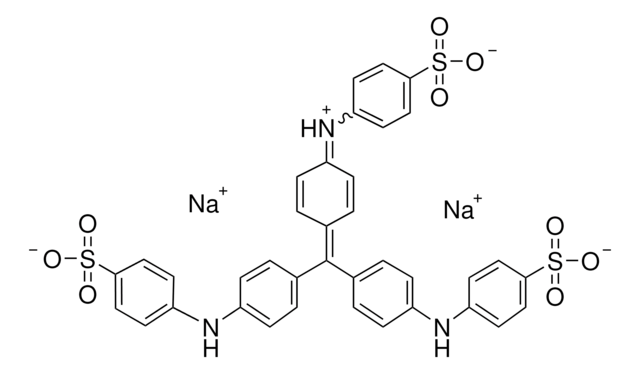77515
Methylene Blue solution
for microscopy
Synonym(s):
Ehrlich’s reagent III, Loeffler’s Methylene Blue
About This Item
Recommended Products
grade
for microscopy
form
solution
shelf life
limited shelf life, expiry date on the label
technique(s)
microbe id | staining: suitable
antibiotic activity spectrum
Gram-negative bacteria
Gram-positive bacteria
suitability
Corynebacterium spp.
bacteria
mycobacteria
spore forming microorganisms
SMILES string
[Cl-].CN(C)c1ccc2N=C3C=C\C(C=C3Sc2c1)=[N+](/C)C
InChI
1S/C16H18N3S.ClH/c1-18(2)11-5-7-13-15(9-11)20-16-10-12(19(3)4)6-8-14(16)17-13;/h5-10H,1-4H3;1H/q+1;/p-1
InChI key
CXKWCBBOMKCUKX-UHFFFAOYSA-M
Looking for similar products? Visit Product Comparison Guide
Application
Components
methylene blue 0.3 g
ethanol 30 ml
water 100 ml
Other Notes
replaced by
Signal Word
Warning
Hazard Statements
Precautionary Statements
Hazard Classifications
Flam. Liq. 3
Storage Class Code
3 - Flammable liquids
WGK
WGK 2
Flash Point(F)
113.0 °F
Flash Point(C)
45 °C
Personal Protective Equipment
Choose from one of the most recent versions:
Already Own This Product?
Find documentation for the products that you have recently purchased in the Document Library.
Customers Also Viewed
Our team of scientists has experience in all areas of research including Life Science, Material Science, Chemical Synthesis, Chromatography, Analytical and many others.
Contact Technical Service






